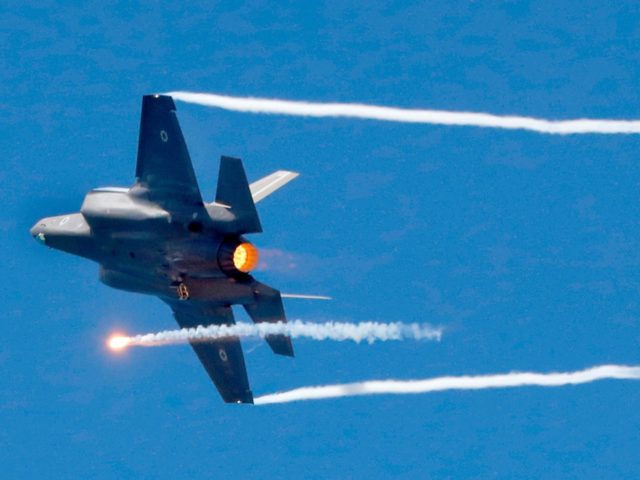TEL AVIV – Israel pressured the United States behind the scenes to block the sale of its F-35 stealth fighter jets to Turkey in order to preserve its advanced air capabilities in the region, Channel 12 reported Wednesday.
Earlier this month, the U.S. announced that it would not sell Ankara the F-35s after the latter purchased the S-400 missile defense system from Russia.
The U.S. has long argued Turkey’s purchase of the Russian system not only risks the security of NATO members, but also violates a 2017 law threatening sanctions for any purchase of sophisticated Russian technology — the Countering Russian Influence in Europe and Eurasia Act of 2017.
The White House at the time said, “The F-35 cannot coexist with a Russian intelligence collection platform that will be used to learn about its advanced capabilities.”
According to Channel 12, Israel had for months lobbied Washington not to go ahead with the sale over concerns that details of the stealth aircraft’s advanced specs would end up in the wrong hands.
Days after the Pentagon’s cancellation announcement, Turkish President Recep Tayyip Erdogan threatened President Donald Trump, saying that if the US refuses to sell aircraft to Turkey, Ankara would not hesitate to reach out to other sources to meet its needs.
Last week the IDF announced that Israel had received two more F-35s, bringing the total of the stealth jets in the air force to 16.
The first two F-35s arrived at the end of 2016 and were declared operational a year later. The air force later showcased the first operational flights and said that the F-35s had already conducted strikes, making Israel the first country to use the planes in warfare.
“The capabilities of the Adir Squadron [Israel’s name for the F–35] add another tier to the operational and strategic capabilities of the air force, which ensures the air force’s superiority in all its missions, namely the protection and safety of the State of Israel’s skies,” the military said in a statement.
Prime Minister Benjamin Netanyahu last month responded to threats made by Iranian officials by saying that Israel’s F-35 fighter jets can reach “anywhere in the Middle East.”
“Lately, Iran has been threatening Israel with destruction,” Netanyahu said. “It should remember that these planes can reach every place in the Middle East, including Iran, and of course also Syria.”
In June, the air force used F-35s for the first time in a large-scale drill simulating multi-front combat action.
“We are training at very high intensity with a challenging, thinking enemy that possesses technology beyond what currently exists in the arena,” a senior air force official said.
According to the official, the F-35s provided a level of “lethality and multi-role capabilities.”
“We did not have these capabilities before,” he said.
The exercise simulated simultaneous fighting in the Gaza Strip, Syria and Lebanon, with Israel sustaining “thousands” of hits at the same time, a senior officer said.
The scenarios involved combating enemies equipped with sophisticated weaponry such as the Russian-made S-300 and S-400 air defense systems.
Israel is contractually bound to purchase 50 F-35 jets from the U.S.’s Lockheed Martin, to be delivered in pairs or threes until 2024 to make two full squadrons. Israel is one of the few countries permitted to modify the jets, which cost around $100 million apiece.
“The ongoing procurement of the Adir is another expression of the long-term military cooperation between Israel and the US, which continues to produce exceptional results in the process of strengthening and streamlining [the F-35],” the army said in its statement.

COMMENTS
Please let us know if you're having issues with commenting.